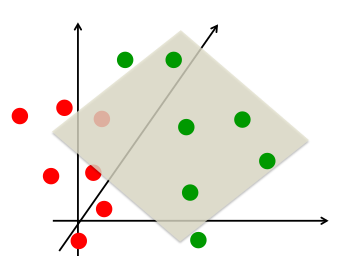

|
Syllabus: pdf |
| Time and Location: M-W-F 1:00pm - 1:50pm, online |
| Instructor Contact Information: Lev Reyzin, SEO 418, (312)-413-3745, |
| Required Textbook: Mehryar Mohri, Afshin Rostamizadeh, and Ameet Talwalkar. Foundations of Machine Learning, second edition (available free online) |
| Optional Textbook: Shai Shalev-Shwartz and Shai Ben-David. Understanding Machine Learning: From Theory to Algorithms (available free online) |
| Office Hours: T 9:00-9:50am, F 2:00-2:50pm, online |